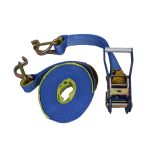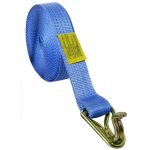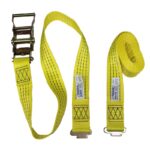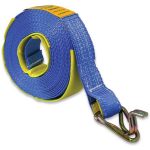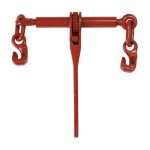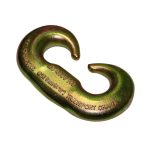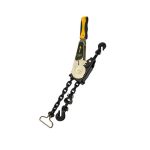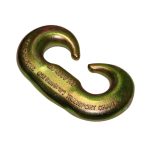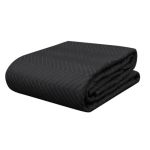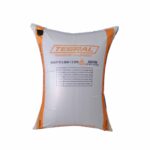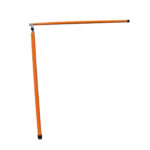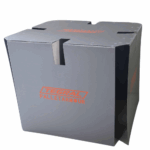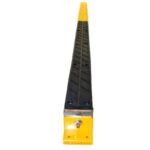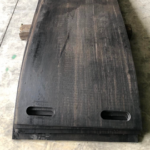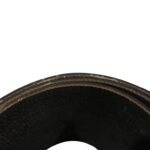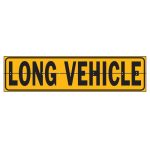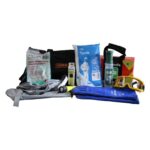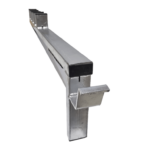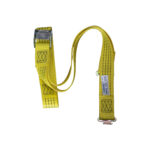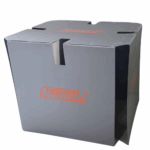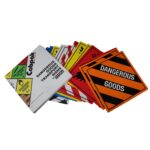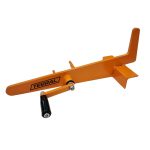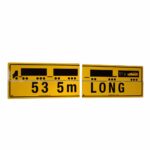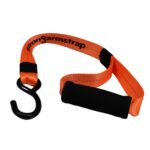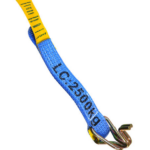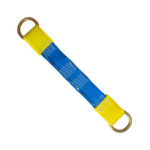Freight transport always involves a risk and it sometimes resulted in cargo damage. Some are beyond human control and some are caused by mishandling. Lack of proper impact protection can also damage cargo.
Dunnage airbags are a cost-effective way to fill a void and mitigate damage. They are also used to protect cargo from shifting during transport. Airbags also provide excellent coverage for the load in transit as they can be inflated to any size needed at the time of installation.
 There are many reasons to use airbags for freight transport. They are cost-effective, lightweight, and easy to install.
There are many reasons to use airbags for freight transport. They are cost-effective, lightweight, and easy to install.
Below are the suggested Dos and Don’ts for using Dunnage Airbags correctly:
- Use the correct filling tool and make sure that it is equipped with the right connector.
The valves on Dunnage Bags are like the charging ports on your mobile phone, different manufacturers put different valve types on their bags. Make sure that your inflator gun fits the valve on your dunnage bags.
There are two types of dunnage bag inflation tools. The standard inflator gun needs to be connected to an air supply (compressor). The latest generation of tools is portable battery-operated dunnage bag inflators.
- Avoid, or cover, sharp edges on your cargo, because they can damage the dunnage bag.
When your cargo has sharp edges, you can use cardboard or plywood between your cargo and the dunnage bag for protection.
- Keep the Dunnage Bags off the floor.
Container floors often have protruding nails or splinters which can puncture your bags. If you are using paper dunnage bags, moisture on the floor can also damage your bags.
- Don’t exceed the maximum void of the dunnage bags.
If you exceed the maximum void, the dunnage bag loses its functionality. Use correct Dunnage size.
- Don’t use 2 dunnage bags next to each other or fold bags.
This just does not work. The bags will slide.
- Don’t use dunnage bags that are taller than your cargo.
Using dunnage bags that are taller than your cargo will create a ballooning effect, as the air will always travel to the area of least resistance.
- Don’t use dunnage bags for transport by air.
The cabin pressure fluctuates too much to keep a consistent air pressure inside the bags. This can result in the bags deflating or exploding.
- Do not overinflate your dunnage bags.
Never over-inflate dunnage bags as this will likely cause them to explode.
- Use the correct strength level for your cargo and mode of transport.
There are 6 levels (including level 0) of dunnage bags. This article provides insight into selecting the right level dunnage bag.
- Never position dunnage bags between cargo and container doors.
This can build up a force at the door, creating a dangerous situation upon opening the container doors.
 Choosing Correct Dunnage Bags:
Choosing Correct Dunnage Bags:
Choosing the right Dunnage Bag depends on the mode of transport, type of cargo to be shipped, and the conditions the product is likely to be exposed to during transit. The kind of Dunnage Bag used also depends on the weight you’re looking to ship. Ideally, you can brace up to 54,000 kg in a container. As for choosing the right ply, here’s a list of thicknesses that you will need depending on load size:
- Two-ply: up to 18,000 kg
- Four-ply: up to 27,000 kg
- Six-ply: up to 45,000 kg
- Eight-ply: up to 54,000 kg
Dunnage Airbag requirement also changes depending on the mode of transport. For example, truck shipments require a two-ply bag, while intermodal shipments will need a two-ply Level 1 bag. Sea containers need Level 1 or Level 2 bags, while railroad cars will need higher dunnage bags depending on the load of the product. Vessel shipments also require higher levels of airbags depending on the weight of the cargo. If you’re not sure about the Dunnage Airbag that’s right for your requirements, feel free to speak to our company’s representative. Ideally, the Dunnage Bag size is calculated by measuring the void between cargo and the distance from the floor to the top load. Remember to include the length of the pallet/skid.
At Tegral, we believe that keeping your product safe during transport is essential to the freight industry. Is your company struggling to keep your goods from bumping or falling into each other during transit, then you might need the use of Dunnage Bags.




